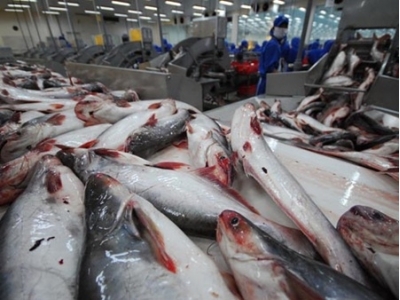Corporate social responsibility - Key to fishery development

Illustrative photo (Source: VNA)
Can Tho (VNA) – Corporate social responsibility to ensure the sustainable growth of the Vietnamese fishery sector was discussed at a seminar held in the Mekong Delta city of Can Tho on October 26.
At the event, Do Thuy Ha, Manager of Oxfam Vietnam Private Sector Programme, said businesses should build good working environments and carry out green production.
Ha cited the results of an Oxfam survey as saying that most of 30 shrimp production companies have practised social responsibility at different levels and pledged to meet all international standards in the field.
The practice has become necessary for any firm wanting to build a strong brand and gain a foothold in the global market, she added.
Agreeing with the view, Pham Minh Luan, director of the KNA certification company, pointed to the fact that batches of Vietnamese aquatic products have been refused entry to the US due to a lack of independent certification in criteria for labour rights, environment protection, and business ethics.
Alban Caratis, a representative of Seafood Trade Intelligence Company, said Ha’s assessment shows that most enterprises have yet to define plans to protect workers’ rights in the long term.
Weak knowledge among managers about discriminations has led to inequality among employees in terms of bonuses, insurance, and annual leave, he noted.
Nguyen Thi Le Hoa, deputy head of the Oxfam Vietnam, said corporate social responsibility brings win-win benefits to businesses, workers, the community, and the environment.
It requires companies to design long-term strategies and action plans to include responsibility as part of their business models, she added
Related news
 New model predicts precise locations of ocean hotspots
New model predicts precise locations of ocean hotspots The model is designed to predict the geographic distribution of copepods such as this one, which was collected near Monterey Bay.
 Fishing quotas to be set at local level
Fishing quotas to be set at local level Given the declining status of fisheries, especially in coastal waters, and the use of destructive fishing methods
 Viet Nam vows to combat IUU fishing
Viet Nam vows to combat IUU fishing During this time, seafood export activities will be still in place. However, there will be some impacts such as: increased inspection on imported products